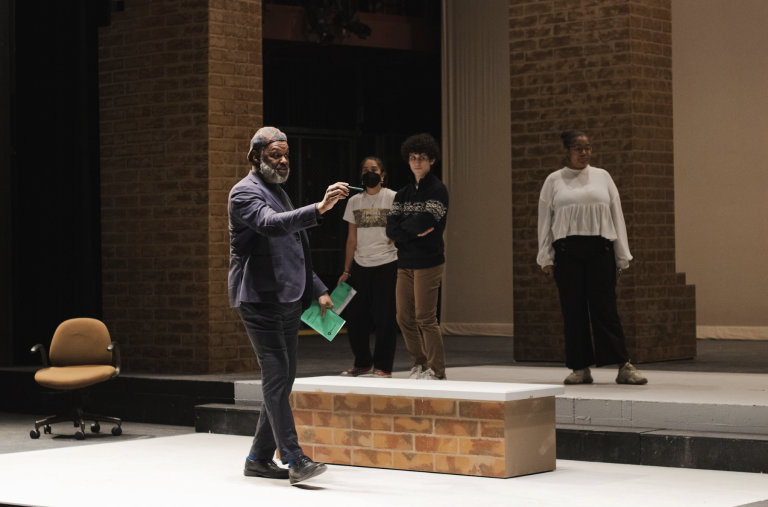TRIP SLAYMAKER ’18
A&E EDITOR
This week, Director Steven Soderbergh’s new film Logan Lucky will be screened at Cinestudio. The movie is a reimagining of the heist-comedy style made popular by Soderbergh’s most popular films, the Ocean’s trilogy of crime comedies. In place of the suave wealth of those films, Lucky is resolutely rustic, set in the rust belt of West Virginia.
Channing Tatum plays Jimmy Logan, a down-on-his-luck miner in a dusty small town. Tatum’s blunt delivery and blue-collar appeal make him a solid, if perhaps obvious choice for the role, and though his drawling accent feels a little stiff at times, he brings a charming heroism to the character. Jimmy’s younger brother Clyde (Adam Driver) is a bartender in town, and though he lost his hand during his tour in Iraq, he objects to being referred to as the “one-armed bartender” on the grounds that it is not accurate, strictly speaking. The two brothers have known hard times, both emotionally and financially, and have a certain cunning that makes itself clear when they eventually discuss past brushes with the law. What is unclear for most of the movie is just how smart these two brothers really are: judging from first impressions, the two are overconfident goons without much of a plan. By the end of the film, that assessment is turned on its head.
Jimmy needs money to pay lawyers: he must prevent his ex wife (Katie Holmes) from leaving the state with his precocious young daughter (Farrah Mackenzie). The answer: robbery. Not just any robbery, though: Jimmy has concocted a plan so far-fetched that it seems far more difficult than a standard bank heist. The theft will take place at the Charlotte Motor Speedway, the sprawling North Carolina Mecca of NASCAR. The venue is so large that it has its own police force, and rents out condominiums atop the stands so that people can live there year-round.
The gigantic stadium rakes in cash during racing events. Rather than simply carrying the cash out of the speedway manually, the money is sent through a vast underground network of tubing, a “cash highway” as the brothers describe it. Regardless of the danger involved, both brothers ease into the preparations for the heist without debate or second thoughts of any kind. It is clear to them, though, that they won’t be able to pull off this crime without help from a real professional: someone who knows how to use explosives to blow the vault.
To this end, the Logan brothers seek help from an incarcerated criminal, the hilariously named “Joe Bang,” here played in an inspired if unlikely casting choice by Daniel Craig. Bang is, predictably, an expert with explosives. There is a problem with enlisting his help, though: he is in prison for another six months. As the Logan brothers conspire to break the man from prison, their plan doubles down in complexity.
Craig is clearly having a great time immersing himself in his skeevy inmate character, relishing every long syllable in what turns out to be a highly convincing West Virginia accent. Alongside this A-list cast is a supporting team of very recognizable cameos: keep an eye open for a razor sharp Hilary Swank as an FBI agent in the film’s third act.
Logan Lucky might conceivably be said to suffer from a falling action problem: without revealing the outcome of their bold burglary plan, the aftermath seems, for a time, to be anticlimactic. It is only after a really wonderful twist in the final minutes of the film that every piece finally falls into place, and that reveal fits wonderfully.
Logan Lucky is a great source of unsophisticated fun, and it challenges preconceived ideas about what it ought to be. Its goofy, hillbilly exterior betrays a sharply witty hidden agenda, and a sly commentary on American aspirations to boot. Logan Lucky will play at Cinestudio Oct. 27 and 28.
Tuesday, January 14 2025
The Student Newspaper at Trinity College in Hartford, Connecticut




+ There are no comments
Add yours